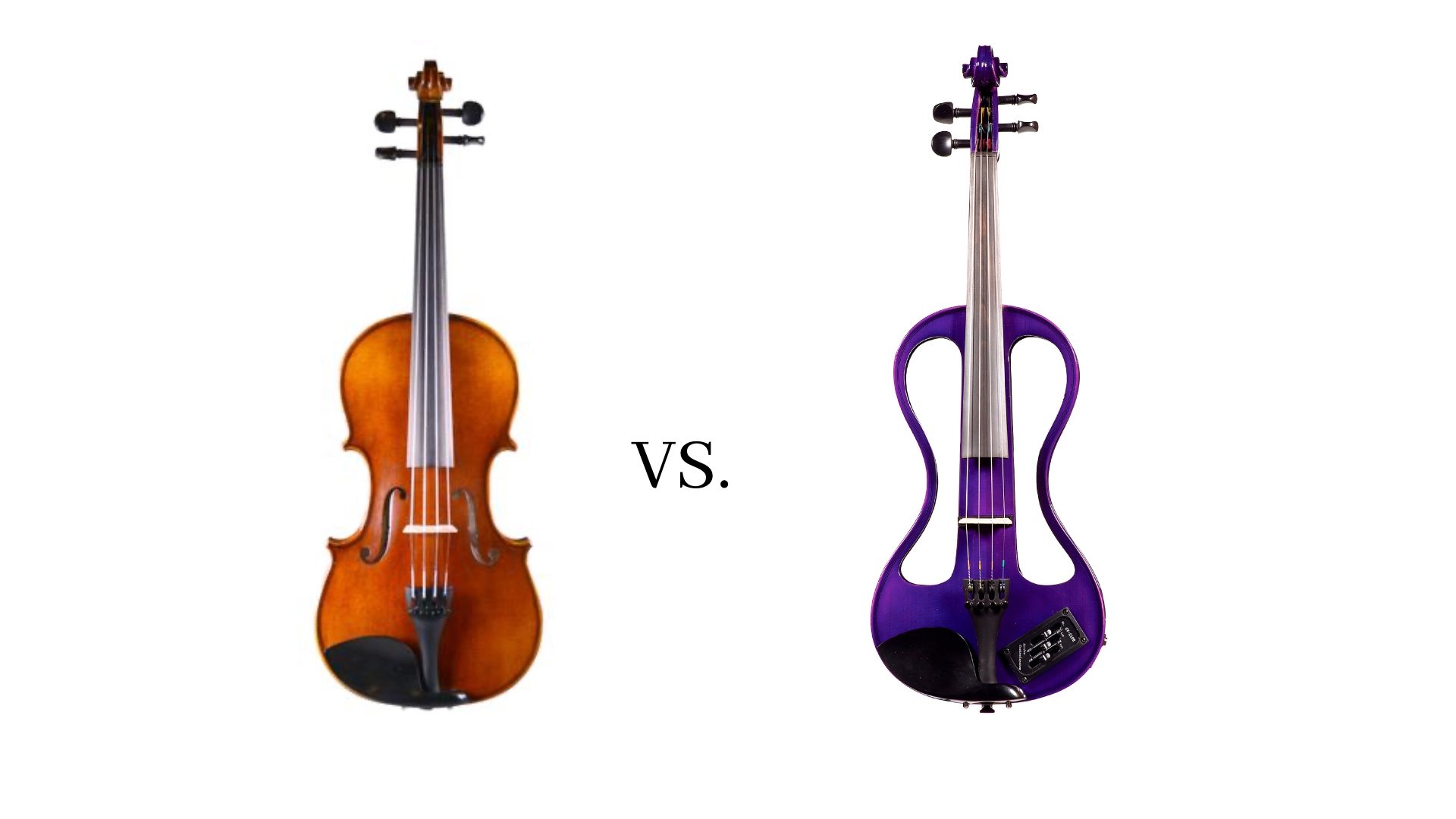Can I Learn Violin on an Electric Violin?
/Can Beginners Learn Violin on an Electric Violin?
If you are thinking about learning the violin, you might be wondering “can I learn to play violin on an electric violin?” While you technically could learn violin on an electric violin, I would recommend against beginners starting off with an electric violin. Why? It all has to do with learning to produce a good tone.
Before we get into the specifics about tone, let’s talk about the three types of violins: acoustic, acoustic/electric, and electric.
What is the Difference Between Acoustic Violins, Acoustic/Electric Violins, and Electric Violins?
Acoustic violins have wooden bodies that naturally resonate and amplify the sound. The wooden body of an acoustic violin acts as a resonance chamber. Electric violins don’t have resonance chambers. They require an amplifier in order to be heard. Acoustic/Electric violins have the traditional wooden body, but they also have pick-ups and usually volume adjusters.
Should I start with electric or acoustic violin?
If you are just starting to learn violin, you should start with an acoustic violin. Acoustic violins allow you to hear the tone you are producing and make adjustments. Electric violins require an amplifier to produce a sound. Even then, the amplified sound is not natural and will make it difficult to learn to produce a good tone.
Producing a good tone with the violin is one of the most difficult skills to master. It requires the optimum amount of weight and speed transferred through the bow to the strings. How do you know if you have the right amount of weight and speed? The natural resonance chamber of an acoustic violin will tell you! If something sounds bad, you’ll hear it and be able to adjust. The effects added when playing with an electric violin (such as amplification, distortion, reverb, etc) make it difficult to hear and learn how to produce a good tone. An electric violin without an amplifier is so quiet that you won’t be able to gauge if you are doing the right things with your bow to produce a good tone.
What are the Disadvantages of an Electric Violin?
Electric violins require amplification to be heard, so if you don’t have an amplifier, the electric violin will be very quiet, and may not produce a sound at all. That means you won’t be able to hear everything you need to hear on an electric violin, making it much harder to learn.
The effects of amplification can also distort the natural sound of the violin and hide mistakes with intonation and bowing.
Is Electric Violin Easier than Acoustic Violin?
No! It is much easier to learn to play on an acoustic violin. With an electric violin, it can be difficult if not impossible to learn to produce a good tone. If you are a beginner violinist, you should learn to play on an acoustic violin.
I’m worried about my neighbors. Should I learn to play on an electric violin?
Electric violins are quieter than acoustic violins since they don’t have resonance chambers and rely on amplifiers to produce a sound. An electric violin without an amplifier has a very quiet sound or it may not produce a sound at all. If you are worried about disturbing your neighbors while you learn to play the violin, you can get a practice mute for your acoustic violin which significantly reduces the sound. Beginner violinists should avoid electric violins until you learn the basics of tone production and intonation. The sound of an acoustic violin can be dampened with a practice mute, but you still have the option of removing the practice mute when you’re not worried about disturbing anyone.
I’m worried about being heard when playing with large groups. Should I get an acoustic/electric violin?
A good quality acoustic violin can actually produce a very loud sound once you learn the basics of tone production. If you need to be heard over other louder instruments or in large venues, you can always mic an acoustic violin.
Acoustic/Electric violins are usually more expensive than their counterpart acoustic violins. If you are a beginner, I would recommend putting that extra money towards a better acoustic violin rather than purchasing an acoustic/electric violin. You can always mic an acoustic violin if you need to be louder. If you regularly play at large venues, for large crowds, or with other amplified instruments, then buying an electric violin or an acoustic/electric violin is probably worth the extra money.
Purchasing your first violin can be overwhelming! Do you need more help choosing your first violin? Check out my top 10 violins for beginners.
Happy Practicing!






















![10 Best Violins for Beginners [2024] A Violin Teacher’s Ultimate Guide](https://images.squarespace-cdn.com/content/v1/554545e3e4b0325625f33fa6/1600433065588-JQV56M1W9LNI833AVGEE/10+best+violins+for+beginners+2020.jpg)



